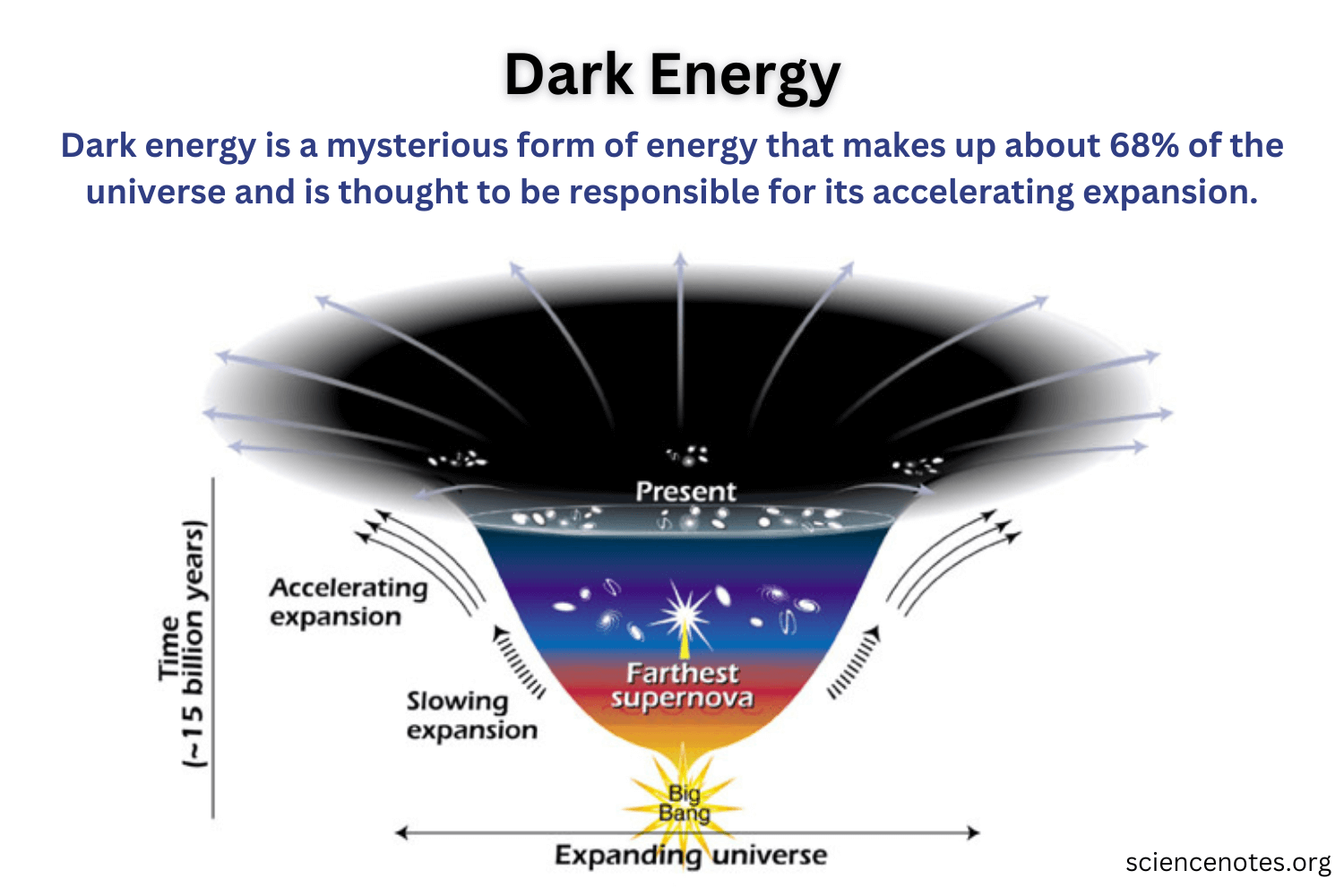Dark energy is one of the most intriguing phenomena in modern cosmology, shaping our understanding of the universe’s expansion and its ultimate fate. This mysterious force is often associated with the cosmological constant, a concept that suggests a consistent energy density filling space homogeneously. Recent investigations led by the Dark Energy Spectroscopic Instrument (DESI) collaboration have provided groundbreaking insights into dark energy, revealing its potential fluctuations over time. Such revelations challenge long-standing theories of gravitational effects and necessitate a reassessment of how we view galaxy evolution across the cosmos. By utilizing the largest 3D map of the universe ever created, scientists are now better equipped to study dark energy’s historical impact on the expansion of the universe.
In the realm of astrophysics, the term “dark energy” refers to the enigmatic force believed to drive the accelerated growth of the universe. Known by various names, this entity is sometimes linked to the cosmological constant and plays a crucial role in shaping cosmic dynamics. The ongoing exploration of this force sheds light on the gravitational influences that dictate the formation and evolution of galaxies. As researchers delve deeper into the vast cosmic web, advanced techniques such as creating comprehensive 3D maps help demystify this elusive energy. Understanding these intricate mechanisms is essential for unraveling the complexities of the universe’s expansion and the overarching structure of matter.
Understanding the Role of Dark Energy
Dark energy is a crucial component in the ongoing study of cosmology, acting as a driving force behind the universe’s accelerated expansion. Researchers have traditionally viewed dark energy as a constant in the fabric of spacetime, a concept epitomized by the so-called ‘cosmological constant’. However, recent findings from the Dark Energy Spectroscopic Instrument (DESI) suggest this force may not be immutable, hinting that it could be diminishing over time. This revelation shakes the foundational perceptions of astrophysics and calls for a reevaluation of existing theories about the universe’s fate.
The DESI collaboration collects comprehensive data on the universe’s structure, focusing particularly on the distribution of matter across vast distances. By analyzing over 14 million galaxies and quasars, scientists seek to uncover how dark energy affects cosmic expansion. The findings indicate that dark energy’s influence could evolve, creating implications for future galaxy formation and overall cosmic dynamics, thus reshaping our understanding of how the universe behaves.
Frequently Asked Questions
What is dark energy and how does it relate to the expansion of the universe?
Dark energy is a mysterious force that is believed to be responsible for the accelerated expansion of the universe. It is often associated with the cosmological constant, a term introduced by Albert Einstein in his equations of general relativity. Studies show that dark energy makes up about 68% of the universe, driving galaxies apart and affecting the overall structure and evolution of cosmos.
How does the Dark Energy Spectroscopic Instrument (DESI) measure the influence of dark energy?
DESI measures the influence of dark energy by mapping the distribution of galaxies and quasars across the universe. By analyzing patterns, such as Baryon Acoustic Oscillations, DESI can provide insights into how dark energy has evolved over the past 11 billion years and how it regulates the expansion of the universe.
What recent findings suggest about the potential evolution of dark energy?
Recent findings from the DESI collaboration indicate that dark energy, previously considered a constant, may be weakening over time. This evolving nature of dark energy could have significant implications for our understanding of the universe’s future and the standard model of cosmology.
What role do Baryon Acoustic Oscillations play in studying dark energy?
Baryon Acoustic Oscillations are patterns in the distribution of matter that originated from the early universe. These oscillations act as a ‘standard ruler’ for measuring cosmic distances, helping researchers quantify dark energy’s influence on the universe’s expansion throughout its history.
How does dark energy affect galaxy evolution and the cosmic web?
Dark energy influences galaxy evolution by affecting the rate of expansion in the universe, which can either promote or hinder the formation of galaxies. Additionally, it shapes the cosmic web’s large-scale structure, impacting how galaxies are distributed and interconnected throughout the universe.
What is the significance of the largest 3D map of the universe created by DESI?
The largest 3D map of the universe created by DESI is significant for studying dark energy, as it provides an unprecedented view of galaxy distribution and interactions. This comprehensive map allows scientists to analyze cosmic evolution and dark energy’s role in shaping the universe over billions of years.
What are the implications of dark energy for the future of the universe?
The implications of dark energy for the universe’s future are profound. If dark energy continues to dominate, it could lead to scenarios like the ‘Big Freeze’ where galaxies drift apart as the universe expands endlessly. Understanding dark energy’s nature and behavior is crucial for predicting the ultimate fate of the universe.
| Key Point | Description |
|---|---|
| Dark Energy Analysis | New results from DESI suggest dark energy may be weakening, necessitating revisions to the standard cosmological model. |
| Role of DESI | DESI creates the largest 3D map of the universe to assess the influence of dark energy over 11 billion years. |
| Collaboration Efforts | Involves over 900 researchers from 70+ institutions led by the Lawrence Berkeley Laboratory. |
| Significance of Findings | The findings could change our understanding of dark energy and how it impacts the universe’s expansion. |
| Educational Outreach | Collaborators created visual materials to better inform the public about the findings and ongoing research. |
Summary
Dark energy is a fundamental component that shapes the universe’s expansion. Recent findings from the Dark Energy Spectroscopic Instrument (DESI) collaboration indicate that dark energy may not be constant and could be changing over time. This insight challenges previous assumptions and highlights the need for further research into the properties of dark energy and its influence on cosmic evolution.


